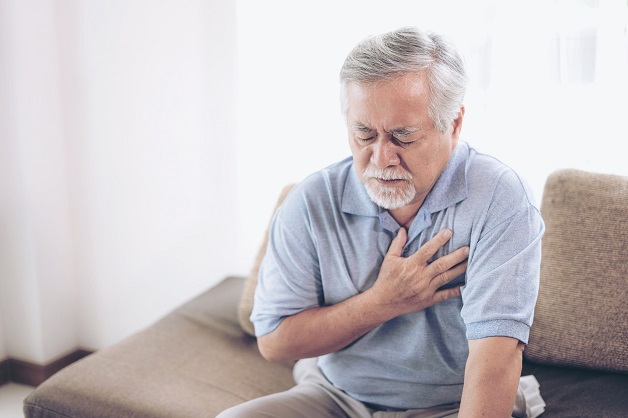Many elderly people suffer from chronic conditions like heart disease, high blood pressure, diabetes, and more, which can lower their quality of life and affect their mental and physical well-being. Because of this, taking care of the elderly at home is a concern for many people.
Common Health Issues in the Elderly
Joint and Bone Problems
As people age, their bodies naturally go through a process called aging. This affects the joints, making them less flexible. The cells in the joints break down, cartilage thins out and tears, and tendons and ligaments become stiff, less elastic, and weaker. The cartilage also becomes cloudy and fibrous, failing to cushion the bones properly. This causes bones to rub against each other, leading to pain. Additionally, bones can crack more easily, and calcium deposits in the joints can make them ache.
Heart and Blood Vessel Diseases
Heart-related illnesses are common and dangerous for older adults. Some typical conditions include:
- High blood pressure
- Heart attacks
- Hardening of the arteries
- Strokes
These problems often come from poor eating habits, like consuming too much fatty food, not exercising enough, or living an unhealthy lifestyle. Smoking, drinking alcohol excessively, and being overweight also increase the risk. If not treated or managed properly, heart diseases can lead to serious consequences. That’s why older adults should keep a close eye on their health and see a doctor as soon as they notice anything unusual.
Digestive Problems
As people get older, their digestive system weakens. The enzymes that help break down food don’t work as well, which can cause bloating, gas, diarrhea, or constipation. Aging weakens the teeth, making it hard to chew food, and the esophagus becomes less effective, leading to choking more often. The stomach and intestines don’t process food as quickly, and the body produces less saliva, stomach acid, bile, and other digestive juices. This slows digestion and makes it less efficient. The lining of the digestive tract also weakens, reducing how well nutrients are absorbed.
Respiratory Issues
Older adults are more likely to get sick with respiratory problems, especially when the weather changes. Common conditions include sore throats, chronic bronchitis, or other lung issues. This happens because of pollution, smoky environments (like from wood or coal stoves), or living in cramped, poorly ventilated spaces, all of which make breathing problems more likely.
5 Tips to Keep the Elderly Healthy
Aging happens slowly throughout the body, causing a decline in how organs work. The speed of aging varies from person to person and from one part of the body to another. However, there are steps older adults can take to stay healthy.
Stay Active and Social
Older adults should join social activities or clubs, like senior groups or exercise classes, to connect with others and keep their spirits up. Aging can weaken the body and memory, leading to forgetfulness, lack of focus, reduced appetite, and even conditions like Alzheimer’s. On top of that, many elderly people feel lonely, nostalgic, or worried. Being part of a community helps them feel happier and less bored or tired.

Regular exercise is also key—walking for 30 minutes a day is a great start. Staying active improves heart health, stabilizes blood pressure, boosts breathing, and reduces extra body fat. Group activities like morning stretching or tai chi can be fun and helpful.
Eat a Healthy Diet
What older adults eat plays a big role in preventing illness, improving health, and helping them live longer. Since digestion becomes harder with age, a smart, balanced diet is essential.
- Don’t eat too much at once.
- Split meals into 5 or 6 smaller portions throughout the day.
- Make food varied and colorful to make it more appetizing.
- Avoid fast food or pre-made meals from stores.
Choose Nutrient-Rich, Low-Fat Foods
Picking the right foods is critical. Older adults need all four food groups—protein, carbs, fats, and vitamins/minerals—but in the right amounts.
- Eat more vegetables, fruits, and plant-based foods like sesame seeds, peanuts, beans, and greens.
- Cut back on animal organs like liver, heart, or stomach.
- Choose fish, shrimp, or crab over fatty meats.
- Lower fat in meals.
- Avoid too much sugar, salt, or sour flavors.
- Go for steamed or boiled dishes instead of fried or grilled ones.
- Drink enough water based on their needs.
Maintain a Good Routine and Emotional Support
Older adults often feel lonely when left alone. Regular visits or check-ins from family and friends can lift their mood and make them feel loved. This could mean a phone call, a visit from grandkids, or even a family trip together—it’s the best way to keep them happy.
Sleep can also be tricky for the elderly—they may wake up often, need to use the bathroom at night, or struggle to fall back asleep. Poor sleep affects their health and energy. Help them stick to a consistent sleep schedule, avoid high pillows, and keep their bedroom quiet, airy, and dimly lit.
Get Regular Health Checkups
Older adults are prone to various illnesses because their bodies weaken with age. Most of these conditions can’t be fully cured and often worsen over time. Regular doctor visits are a must since treating the elderly is tough, takes longer, and their recovery is slower.
Routine checkups help catch problems early, allowing for timely treatment. This can stop diseases from getting worse or even clear them up when they’re still mild.
By following these tips, older adults can enjoy better health and a happier life!
